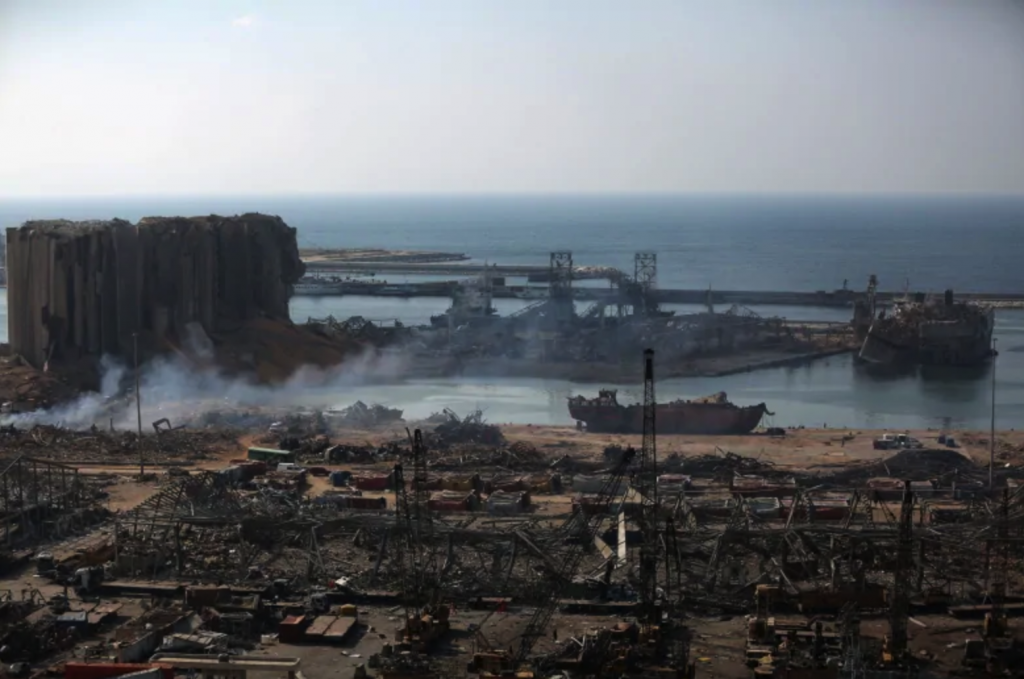Sustainable Rebuild of Port of Beirut
Port of Beirut is the most important port in Lebanon, and one of the most important ports in the eastern basin of the Mediterranean Sea.
Due to its strategic location, this port, which was inaugurated in 1894, was used to import basic materials from countries of the world and export them through the Lebanese interior to the countries of the Middle East.
This port is considered a main pillar of the Lebanese economy. As it plays a fundamental role in the import and export process, and thus moving the Lebanese economic wheel.
Port of Beirut deals with 300 international ports and the number of ships docking in it is estimated at 3,100 ships annually. The port consists of 4 basins up to 24 meters deep, in addition to a fifth basin that was under construction.
It also includes 16 berths, many warehouses and wheat silos that provide the best storage conditions.

The port also provides no less than 1000 job opportunities.
After the catastrophic explosion that the Beirut port witnessed, the port needs to be rebuilt in all its logistical and organizational joints, as well as in terms of operations, as bottlenecks and congestion in docks and warehouses due to insufficient infrastructure or services can lead to additional congestion, additional emissions and additional costs for shippers and operators. Transport, consumers and all parties.
Therefore, we at MENA Maritime Development Programme launched the sustainable building program for the Port of Beirut. The programme aims to improve operations in the port so that this program is gradually implemented through a set of legislative and non-legislative measures as follows:
- Establishing a framework for providing port services and common rules regarding financial transparency for the port, and the goal is to achieve equal opportunities in this sector, protect Beirut port operators from uncertainties, and create a more favorable environment for effective public and private investments.
- Set up the minimum requirements that can be imposed for safety and environmental purposes, the conditions under which the number of operators can be restricted, and procedures for selecting operators in such cases, where It provides common rules on public funding transparency and levying fees for the use of port infrastructure, and as such, it requires all service providers in Beirut port to ensure proper training for employees.
- Promote and support the exchange of experiences between the stuff in port of Beirut with their counterparts in Arab, Asian and European countries, as the program helps in promoting health and safety, training and rehabilitation, gender issues, promoting female employment, and attracting young workers. The program also aims to identify the main challenges that the port of Beirut and how the industry adapts to change and prepare for the future.
- Simplification of procedures at the port where improving the flow of digital information and reducing the administrative burden is vital to ensuring efficient ship clearance operations, enabling timely operations, and improving vessel response time in port.
- Ensuring the optimal implementation of all international maritime laws and regulations that guarantee safety in the port, in particular, SOLAS – ISPS Code – IMDG Code – and all rules related to Port state control.
- Providing the necessary consultations, studies, and training that help donors, governments, and organizations in assessing the value of damages, as well as assessing the risks and the future of port of Beirut in terms of logistical, security, commercial, and safety aspects.
